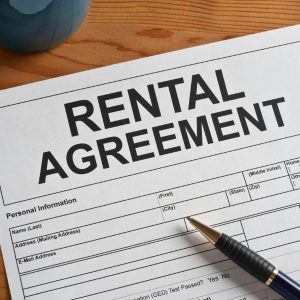
Selling a rental property in Charlotte, NC requires careful planning. Zack Buys Houses can help you navigate tenant rights, taxes, and other key steps to ensure a smooth sale.
Understanding the Basics of Selling Rental Property in Charlotte
To sell a rental property in Charlotte, you need to have a good awareness of the local real estate market. Charlotte is a city that is growing quickly and becoming more appealing to investors. This creates both opportunities and problems. To get the most money for your property, you need to think about the current housing trends and the way the city’s market works. You should also be aware of any possible tax consequences, as these can have a direct effect on your profit. This overview will look at the most important things to think about when buying or selling real estate in Charlotte and how housing trends affect rental investments.
Key Factors to Consider in the Charlotte Real Estate Market
When considering the sale of a rental property in Charlotte, it’s essential to assess various important factors that shape the city’s real estate landscape.
To begin with, grasping the existing demand for properties is essential, whether for those looking to buy homes or for the rental sector. Charlotte is currently undergoing a significant growth phase, drawing in a consistent stream of new residents. The surge is mainly driven by the dynamic business landscape, cultural offerings, and appealing lifestyle choices in the city, establishing it as a prime location for real estate endeavors.
Evaluating the effects of this growth on property values and rental demand is crucial. A strong demand indicates that your investment property may sell swiftly, potentially exceeding the asking price, thereby enhancing your sales revenue. Nevertheless, a heightened market may lead potential new buyers to approach their offers with greater caution. Thus, seeking advice from an experienced real estate expert familiar with the unique market trends in Charlotte can offer customized insights and strategies to enhance your profitability.
The timing of your property sale is another essential element to consider. Timing your sale to coincide with peak buying seasons, usually in spring and summer, can greatly boost market interest and may result in a more successful outcome.
Implementing thorough property management strategies prior to selling is crucial. Keeping your investment property in top shape and visually appealing can significantly impact its market value and attract potential buyers. Given these factors, strategic planning is essential to maximize the distinct opportunities present in the Charlotte real estate market.
Additionally, being aware of the local laws and regulations that influence property sales is essential to prevent any unexpected issues that could affect the success of your home sale. Engaging with legal professionals who specialize in Charlotte real estate can greatly simplify this intricate process, leading to a more seamless transaction.
How Charlotte’s Housing Trends Influence Rental Property Sales
The changing landscape of housing trends in Charlotte plays a crucial role in shaping your strategy for selling your rental property.
Charlotte stands out as one of the fastest-growing metropolitan areas in the United States, with its real estate market marked by swift changes and evolving buyer preferences. These trends are essential for property owners looking to maximize their investments.
Recently, Charlotte has experienced an increasing interest in urban living spaces, as more residents prefer being close to downtown attractions like restaurants, cultural venues, and workplaces rather than opting for the expansive suburbs. This change has heightened the demand for properties in urban areas, frequently favoring residences equipped with contemporary amenities and sustainable features.
Therefore, if your rental property fits these trends, promoting its prime location and contemporary amenities could greatly boost its attractiveness in the market.
Moreover, the continuation of housing construction projects can influence property values. Charlotte’s effort to broaden housing choices in response to its growth suggests that emerging competition could influence sales tactics. Staying updated on these developments is essential, as they can impact buyer interest and the perceived value of properties.
Additionally, the transition to remote work has impacted housing trends. Properties featuring dedicated office areas or exceptional internet connectivity are becoming more appealing in our rapidly evolving digital landscape. Grasping these trends enables you to showcase your property in a manner that meets modern buyer expectations, helping it to shine in a crowded marketplace.
Additionally, it is essential to utilize digital marketing channels efficiently. Utilizing top-notch online listings, immersive virtual tours, and a thoughtful approach to social media can expand your reach and draw in prospective buyers who value these contemporary features.
Aligning your sales strategy with Charlotte’s housing trends not only boosts your chances of a successful property sale but also has the potential to enhance your overall return on investment and strengthen your reputation in the real estate field.
Navigating Property and Capital Gains Taxes

When you sell your home for cash in Charlotte and other cities, especially a rental property, you face the complex issues of property and capital gains taxes. Understanding your property tax obligations is crucial to avoiding unexpected costs that could reduce profits. Additionally, knowing how capital gains affect your income when selling real estate can help you maximize your returns. This section examines key considerations regarding property taxes and capital gains, ensuring your property sale goes smoothly while securing the most significant tax benefits.
What You Need to Know About Property Tax Responsibilities
When you sell your Charlotte investment home, property tax is an important thing to think about. As the owner, it’s your job to pay any property taxes that are still due before the sale goes through. These taxes are based on how much your home is worth, and the local government changes the amount every year. It’s important to stay up to date on these values because any changes can have a direct effect on your financial obligations during the sale process.
It is very important to know when to pay your property taxes. Tax bills for Charlotte homes are usually sent out in July and must be paid by January 6 of the following year to avoid a fine. But if you sell your home in the middle of the year, these dates may not work out as planned. The closing attorney or realtor is usually in charge of dividing the taxes between the buyer and seller as part of the real estate deal. Knowing these details can keep you from being surprised and make sure that everyone pays their fair share of taxes.
To speed up this process, it helps to have detailed records of past property tax payments and complete paperwork. These records not only make deals go more smoothly, but they are also very important if there are any problems after the sale. Also, knowing about any tax breaks you may be eligible for can help lower your tax bills even more. There are provisions like the homestead exemption or agricultural exemptions that might help you pay less in taxes if they apply to your land.
In conclusion, taking care of your property taxes ahead of time can help you sell a rental property in Charlotte for a profit. By fully understanding your responsibilities and keeping all relevant records, you can handle these problems with ease, making sure the property’s sale goes through without causing any problems with your financial plans.
Understanding Capital Gains When Selling Your Rental Property
When you sell a rental property in Charlotte, you need to think about capital gains tax because it can have a big effect on the money you make from the sale. This tax is based on the profit you make when you sell a house. The profit is the difference between the house’s selling price and its original buy price, minus any improvements that were made.
If you owned the land for less than a year, the gain is taxed at the same rate as your federal income. Long-term capital gains tax rates are lower for homes that have been owned for a longer time, which can be a good thing. It is very important to understand these differences, especially when buying investment properties, because the different tax rates can have a big effect on your total gain.
A 1031 exchange, which lets you put off paying taxes on your capital gains by putting the money in a similar property, could help you pay less in capital gains taxes. This approach works especially well if you want to keep investing in real estate and use capital gains to grow your portfolio. But 1031 exchanges are governed by strict rules, such as time limits for finding and buying a new property. To do them correctly, you need to talk to an expert.
It’s also important to look into any capital gains tax breaks or exemptions you might be able to get. The IRS lets people sell their main homes without having to pay taxes on them, but there are rules about homes that were used as both a home and a rental. Talking to a tax expert can help you come up with personalized plans to take advantage of tax breaks and make sure you’re following the rules.
To protect your money, it’s very important that you include the right amount of capital gains in your plan to sell your home. By learning and applying these tax principles and looking into available discounts and strategies, you can get the best results from your sale while still following the rules of the real estate market.
Understanding capital gains is essential when selling a rental property, as profits may be subject to taxes and depreciation recapture. At Zack Buys Houses, we buy houses in Greensboro and the surrounding areas for a quick, hassle-free sale.
Strategies for Maximizing Tax Exemptions

When selling a rental property in Charlotte, maximizing tax exemptions is critical to retaining more of your profit. Understanding potential alternatives allows homeowners to maximize their tax payments, making the selling process more financially favorable. Tax exemptions assist both experienced property managers and first-time sellers in legally reducing tax liabilities. Exploring exemption potential for sellers and exploiting common tax deductions can significantly reduce overall liabilities. Charlotte homeowners, with its thriving real estate market, have a variety of solutions to alleviate the financial strain of property transactions. Learn about tax-efficient strategies.
Exploring Tax Exemption Opportunities for Sellers
People selling rental homes in Charlotte need to know how to navigate the world of tax exemptions. As the city’s real estate market keeps growing, homeowners need to make sure their selling techniques work with the tax breaks that are available to them in order to make the most money. The capital gains tax exception is a very important thing to look into, especially for people whose rental property has also been their main home. Homeowners can avoid paying income tax on the sale of their main residence if they meet specific residency conditions. They can exempt up to $250,000 ($500,000 for married couples) in capital gains. But if the residence has been rented out, there are limits on how often this exclusion can be applied. This is because of the “look-back” rule, which is important to know.
Another useful exemption is the 1031 exchange. This is a smart way for sellers to avoid paying capital gains taxes by using the money they make from selling one property to buy another similar property. This strategy is quite helpful for real estate investors in Charlotte who want to improve or expand their portfolios. It necessitates adherence to particular identification and transaction timing standards; therefore, collaborating with a proficient tax advisor or property management specialist can yield crucial insights.
Also, Charlotte’s real estate market has tax breaks that are exclusive to the area, which could help lower tax bills. Some of them are rewards for making your home more energy-efficient or improving certain parts of it. Sellers who make eco-friendly improvements before selling not only get a higher price for their home, but they may also be able to get tax breaks. People who manage rental properties should keep up with changes to state laws, since these could have a big impact on the overall tax situation. Knowing about these choices can make the difference between a sale that costs you a lot of money and one that makes you money.
Common Tax Deductions for Homeowners in Charlotte
In the busy Charlotte market, homeowners can use a number of tax breaks to lower the amount of taxes they have to pay when they sell their home. A common deduction is for mortgage interest. Homeowners can deduct the interest they pay on their house loan. This is especially helpful if the property has gone up in value and refinancing was part of the investment plan. This deduction can greatly lessen the taxable income from the sale of an investment property.
Another important deduction is property taxes on real estate. When Charlotte property owners sell their homes, they should include all of the property taxes they have paid as deductible expenses. This is especially important because the city’s reassessment methods may have changed your property tax bill over time. Keeping detailed records of all payments can help you get the most out of this benefit and make filing easier.
In addition, Charlotte homeowners can deduct costs linked to managing and maintaining their property while it is being rented out. Costs for regular maintenance, such as grass care and fixing the structure, can be deducted, which lowers the overall taxable revenue when selling. This shows how important it is for owners to keep good records of all these expenses so they can figure out how much they may deduct from their profits.
You can also deduct the costs of marketing, staging, and selling the property itself. You may be able to deduct things like real estate professional commissions, attorney fees, and even closing costs. Using these can greatly increase net income. Charlotte residents can effectively lower their tax burden by learning about these deductions and the tax breaks that are available. This shows how important it is to arrange your finances carefully when selling a home. Working with real estate and tax experts can help these efforts even more by making sure they follow the rules and get the most money.
Homeowners may deduct mortgage interest, property taxes, and specific home improvements. For more help, Contact Us at Zack Buys Houses.
Legal Considerations When Selling Real Estate

Charlotte real estate sellers need to think about a number of legal issues that are very important to the deal going smoothly. Real estate owners and landlords need to know what the legal steps are to protect their property sale. For example, they need to give tenants enough warning and follow local rules. These rules must be carefully followed to avoid possible legal problems. Legal advice from someone who knows a lot about Charlotte’s complex real estate rules can be very helpful and protect your sale process. The steps in this part that are important for legally selling your rental property are outlined.
Key Legal Steps to Protect Your Property Sale
When it comes to selling a rental property in Charlotte, it’s crucial to follow the appropriate legal procedures to safeguard your interests and facilitate a seamless transaction. Notifying your tenants about the property sale is a crucial step in the process. In line with the regulations in Charlotte’s real estate sector, landlords must ensure that tenants receive proper notification, which varies depending on the specifics of the lease agreement. Reviewing the lease agreement and understanding local regulations is crucial to identifying the necessary notice period mandated by law, helping to avoid any potential legal conflicts that might threaten the sale.
Another important factor in real estate transactions in Charlotte is adhering to disclosure requirements. It is a legal requirement for sellers to reveal any known significant defects or problems that may impact the property’s value or appeal. Not revealing this information can result in legal issues, which may cause delays or possibly even halt the sale altogether. It’s advisable to engage the services of a real estate attorney or a knowledgeable expert to ensure that all necessary disclosures are made transparently and accurately.
Additionally, having clear property titles is essential for successfully navigating a property sale in Charlotte. Unresolved liens or encumbrances can create hurdles in the transaction process, possibly resulting in legal issues. Performing a comprehensive title search at the beginning of the sales process can uncover any existing issues that require attention. Collaborating with a reliable title company can be advantageous, as they help address these issues effectively, guaranteeing a smooth and undisputed transfer of property ownership.
Achieving a successful property sale requires careful examination and potential negotiation of the purchase agreement’s terms. This legal document details the particulars of the sale, encompassing the price, contingencies, and timelines involved. Engaging a real estate attorney to examine this agreement can safeguard your interests and ensure that all terms are in harmony with your sales strategy and financial objectives. The purchase agreement is essential to the transaction, and careful preparation is key to ensuring a smooth sale.
Finally, property owners need to pay attention to the distinctive zoning laws and regulations in Charlotte. Modifications to zoning regulations can impact property values and may shape the approach to sales strategies. It’s crucial to keep up-to-date with local zoning changes and understand their potential effects on your property. Additionally, if the structure has undergone any renovations or modifications, making sure these are completely in line with relevant codes can help avoid unforeseen legal challenges. By implementing proactive legal strategies, sellers can boost the security and success of their property transactions, leveraging Charlotte’s vibrant real estate market while safeguarding their investments.
Looking to sell your house? Sell quickly, skip repairs, and enjoy a stress-free process with Zack Buys Houses. We make fair cash offers, manage the details, and keep it simple. Contact us at 704-769-0141 for a free, no-obligation offer. Start today!
FAQs:
What Are the Key Strategies for Minimizing Tax Liabilities When Selling a Rental Property in Charlotte, NC?
To minimize tax liabilities, sellers can leverage capital gains tax exemptions, utilize tax deferral strategies like 1031 exchanges, and take advantage of deductions and exemptions. Consulting with tax and real estate professionals can help navigate these strategies effectively.
How Do Housing Trends in Charlotte Affect the Sale of a Rental Property?
Charlotte’s rapidly growing real estate market, characterized by a shift towards urban living and demand for modern amenities, influences rental property sales. Properties that align with these trends, especially those located near downtown amenities or offering eco-friendly features, can attract higher buyer interest and better market value.
What Are the Legal Requirements When Selling a Rental Property in Charlotte?
Sellers must notify tenants about the sale, comply with property disclosure obligations, ensure clear property titles, and adhere to Charlotte’s zoning laws and regulations. Working with a real estate attorney can help ensure all legal steps are properly followed.
When is the Best Time to Sell a Rental Property in Charlotte, NC?
Selling during peak buying seasons, typically in spring and summer, can enhance market interest. Aligning the sale with these times often leads to more buyer competition and potentially higher sales prices.
How Can a 1031 Exchange Benefit a Property Seller in Charlotte?
A 1031 exchange allows sellers to defer capital gains taxes by reinvesting proceeds into a similar property. This is beneficial for sellers who plan to continue investing in real estate, allowing portfolio expansion while deferring tax payments.
Helpful Charlotte Blog Articles
- Sell Your Charlotte, NC, Home To A Real Estate Developer
- Discover Charlotte, NC’s Top Neighborhoods
- How Long After an Appraisal Can You Close in Charlotte, NC
- How to Handle the Sale of a Rental Property in Charlotte, NC
- Selling a House Divorce in Charlotte, NC
- Selling a House with Foundation Problems in Charlotte, NC
- Do I Need to Paint My House in Charlotte, NC, to Sell It?
- Can I Sell My House Below Market Value in Charlotte, NC?
- What Taxes Do I Have to Pay When I Sell My House in Charlotte, NC?

